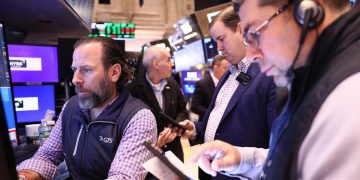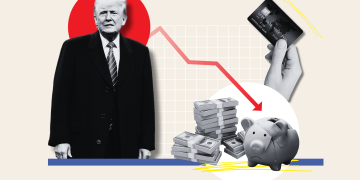Leave the money or take it out?
Reading Time:2 mins read
Related Posts
Popular Newzz
-
Conservative students like me are told to skip college. Don’t listen
-
Global Collaborative Robot (Cobot) Market Anticipated to Raise a Revenue of $8,840.5 Million at a CAGR of 41.2% during the Forecast Period, 2019-2026 – Exclusive Report [150 Pages] by Research Dive
-
Tantalum Capacitors Market is estimated to register a CAGR of around 6% during the forecast period (2021-2031)
-
AGA Forecasts March Madness Betting Boost for Online Sportsbooks – European Gaming Industry News
-
Airbnb lost $1.2 billion in 1st quarter, blames European lockdowns
Categories
- ART & CULTURE
- AUTOMOBILE
- B2B
- BEAUTY
- BLOCKCHAIN / CRYPTOCURRENCY
- BUSINESS
- CYBERSECURITY
- DENTAL
- ECOMMERCE
- ECONOMY
- EDUCATION
- ENTERTAINMENT
- FASHION
- GADGETS & MORE
- GAMING
- GARDENING
- HEALTH & FITNESS
- HOBBIES & DIY
- HOME IMPROVEMENT
- INDUSTRIES
- INSURANCE
- INTERNATIONAL
- LAWYER
- LIFESTYLE
- MARKETS
- PARENTING
- PERSONAL FINANCE
- PET
- PLUMBER
- REAL ESTATE
- SOFTWARE
- SPORTS
- STARTUPS
- TECHNOLOGY
- TRAVEL
- Uncategorized
© 2021 Copyright - All rights reserved.



























































